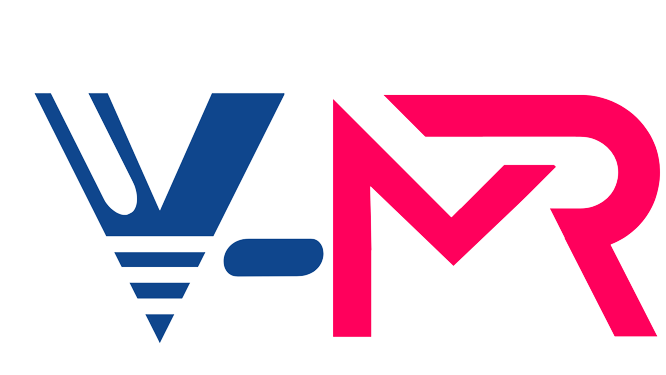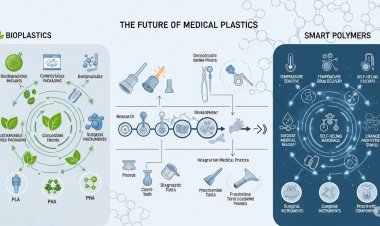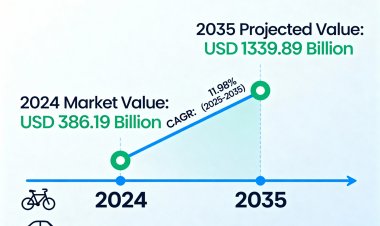Global Cancer/Oncology Drugs Market Trends 2025: Analysis & Forecasts
Explore in-depth analysis of global cancer/oncology drugs market trends for 2025. Discover emerging therapies, technological innovations, and key growth drivers shaping the future of cancer treatment.

Cancer/Oncology Drugs Market Trends 2025: In-Depth Analysis and Future Forecasts
The worldwide cancer and oncology drugs market experiences important changes which result from emerging therapy approaches together with technology improvements alongside changing regulatory environments. The market trends for 2025 are experiencing rapid changes because cancer rates keep growing and healthcare expenses increase while innovative treatment approaches emerge.
Introduction
Modern healthcare heavily depends on the critical component of oncology drugs market because cancer stands as one of the leading reasons for deaths worldwide. With millions of patients affected by various types of cancer, the demand for effective oncology drugs is higher than ever. The cancer drugs market expanded significantly through the last decade through enhanced personalized medicine implementation together with advanced immunotherapy treatments and targeted therapeutic options and superior drug delivery technology development.
Our comprehensive Cancer/Oncology Drugs Industry report ready with the latest trends, growth opportunities, and strategic analysis- View Sample Report PDF

Understanding the Global Cancer/Oncology Drugs Market
The Rising Burden of Cancer
Cancer affects millions of people globally and is a major public health challenge. Elderly demographics along with environmental effects and changes in daily routines drive cancer cases to rise annually. Market expansion occurs because the need for sophisticated oncology drugs increases steadily.
Market Segmentation
The cancer drugs market can be segmented based on drug classes, including:
- Chemotherapy Agents: Traditional drugs used in cancer treatment.
- Targeted Therapies: Medications designed to interfere with specific molecular targets involved in cancer progression.
- Immunotherapy: Drugs that stimulate the patient’s immune system to attack cancer cells.
- Hormone Therapies: Treatments that block or lower hormones to slow the growth of certain cancers.
- Combination Therapies: Innovative approaches that use multiple drugs to achieve synergistic effects.
Pharmaceutical organizations need a detailed understanding of market segments because this data reveals which parts of oncology drug innovation are developing while showing company placement in the competitive landscape.
Market Trends and Growth Drivers
Increasing Prevalence of Cancer
One of the primary drivers of the global oncology drugs market is the rising prevalence of cancer. Medical research demands advanced cancer treatments urgently because worldwide cancer deaths approach 10 million patients while new cases reach 19.3 million per year. Effectively treating cancer depends on early detection and prompt intervention which enhances the market need for innovative oncology drugs.
Technological Advancements in Drug Development
Modern pharmaceutical discoveries and biotechnological innovations at present are revolutionizing cancer medical care and treatment. Targeted therapies and immunotherapies like monoclonal antibodies and checkpoint inhibitors transformed cancer treatment processes. The new therapeutic approaches provide better effectiveness along with fewer adverse reactions than standard chemotherapy protocols. New drug delivery platforms built around nanoparticles and controlled-release platforms improve drug legibility for patients while enhancing their drug access.
Regulatory Approvals and Investment in R&D
Regulatory bodies worldwide are streamlining the approval process for new oncology drugs, allowing faster market entry for innovative treatments. Increased investment in research and development (R&D) by pharmaceutical giants and biotech startups is another critical growth driver. The healthcare industry receives substantial financial support to conduct clinical trials as well as develop biomarkers along with personalized medicine which fuels an active new cancer therapeutic development pipeline.
Strategic Collaborations and Partnerships
Collaborative efforts between pharmaceutical companies, research institutions, and technology providers are fostering innovation in the oncology drugs market. Companies implement joint ventures together with licensing agreements to merge their specialized knowledge with organizational resources which speeds up the progress of new therapeutic developments. Partnerships between companies serve two important purposes because they help address clinical hurdles and regulatory barriers while enabling worldwide market expansion.
Take Action Now: Secure your Global Cancer/Oncology Drugs industry today – Purchase Now
Emerging Trends in Oncology Drug Innovations
Breakthrough Therapies and Personalized Medicine
Personalized medicine is increasingly influencing the oncology drugs market. The development of genetic and biomarker research enabled medical professionals to create customized treatments that attack particular cancer cell mutations and molecular processes. Genetic profiling informs which therapy will be most effective for each patient thus improving both outcome results and minimizing side effects.
Digital Health and Remote Monitoring
The integration of digital health technologies is transforming cancer care. The healthcare sector advances treatment outcomes through wearable technology combined with mobile health apps and telemedicine systems that improve patient observation and medication adherence and help detect disease recurrence early. Through digital solutions healthcare providers acquire real-time data while conducting remote patient management which ultimately results in better oncology treatment effects and outcome improvements.
Novel Drug Delivery Systems
Innovative drug delivery systems are a major trend in the oncology drugs market. Inhalable and oral formulations, nanoparticle carriers, and implantable drug delivery devices are being developed to optimize the delivery of cancer drugs. These healthcare systems function to improve medication intake efficiency while minimizing treatment frequency and increasing patient availability benefits.
Combination Therapies
Combination therapies that integrate two or more treatment modalities are gaining traction in cancer care. Clinical research employing simultaneous targeted therapy and immunotherapy techniques has demonstrated positive results while minimizing tumor resistance to treatment as well as extending patient survival durations. Drug combinations maximize their combined effects to provide treatment solutions which cover various stages of cancer development.
Future Forecast and Opportunities
Market Growth Projections
According to recent industry reports, the global oncology drugs market is expected to grow at a compound annual growth rate (CAGR) of around 6-8% through 2025. This growth is driven by the increasing cancer burden, technological innovations, regulatory support, and significant R&D investments. Emerging markets in Asia-Pacific, Latin America, and the Middle East are poised to contribute substantially to market expansion due to improving healthcare infrastructure and rising cancer awareness.
Opportunities for Stakeholders
- Pharmaceutical Companies: Firms that invest in R&D, particularly in personalized medicine and novel drug delivery systems, are well-positioned to capture significant market share. Continuous innovation is key to staying competitive in the oncology drugs market.
- Biotech Startups: Emerging biotech firms have the opportunity to disrupt the market with breakthrough technologies and innovative treatment approaches.
- Healthcare Providers: With the increasing adoption of digital health tools and remote monitoring, healthcare providers can enhance patient outcomes and drive the adoption of advanced cancer therapies.
- Investors: The oncology drugs market presents attractive investment opportunities due to its robust growth potential and continuous innovation. Investors are encouraged to focus on companies that are leading the development of next-generation cancer treatments.
Challenges Ahead
Despite the promising outlook, the oncology drugs market faces several challenges:
- Regulatory and Approval Hurdles: Navigating the complex regulatory landscape can delay the market entry of new therapies. Extensive clinical trials and rigorous safety standards are required, which may increase development costs and time-to-market.
- High Costs of Novel Therapies: Innovative cancer treatments, particularly personalized therapies and advanced drug delivery systems, often come with high price tags. This can limit accessibility, especially in low- and middle-income countries.
- Market Competition: The oncology drugs market is highly competitive, with numerous established players and emerging companies vying for market share. Patent expiries and the introduction of generic alternatives can also impact profitability.
- Patient Adherence: Ensuring that patients adhere to their treatment regimens is a constant challenge in cancer care. Poor adherence can affect treatment outcomes and limit the effectiveness of new therapies.
For Cancer/Oncology Drugs Market Research Report and updates detailed: View Full Report Now!
Conclusion
The oncology drugs market shows promising growth because breakthrough therapies combine with digital health integration and personalized medicine to advance market expansion. The global increase in cancer cases makes it crucial to develop both safe and effective and innovative treatment methods. Despite facing regulatory hurdles and high costs and intense competition the oncology drugs market demonstrates a positive industry prospect for the future.
For an in-depth analysis of market forecasts, key players, and regional trends, explore the detailed Cancer/Oncology drugs market report by Vantage Market Research.


















